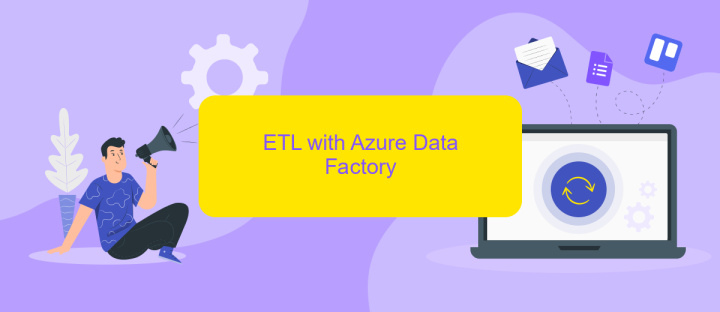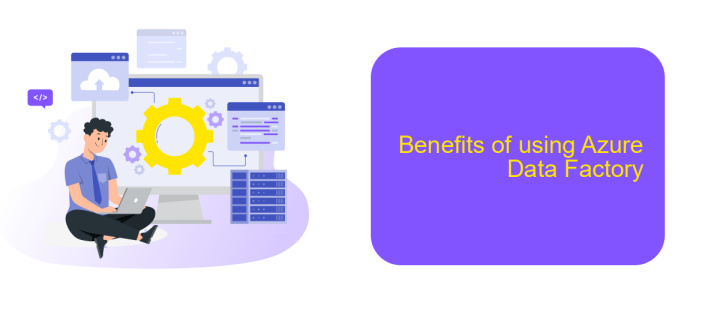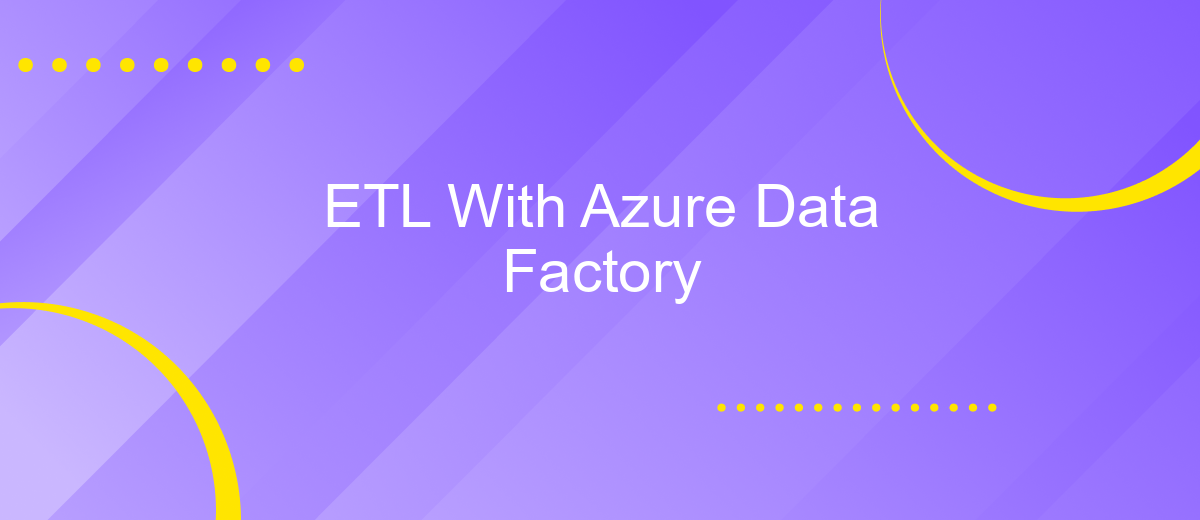ETL With Azure Data Factory
Azure Data Factory (ADF) is a powerful cloud-based data integration service that enables you to create, schedule, and orchestrate Extract, Transform, Load (ETL) workflows. With ADF, businesses can efficiently manage their data pipelines, seamlessly integrating diverse data sources and transforming raw data into actionable insights. This article explores the key features and benefits of using Azure Data Factory for ETL processes.
Introduction
Azure Data Factory (ADF) is a powerful cloud-based data integration service that enables you to create, schedule, and orchestrate data workflows at scale. It is designed to handle complex data transformation tasks, making it a key component in modern data engineering and analytics pipelines. With ADF, you can seamlessly connect to various data sources, transform data, and load it into your desired destinations.
- Seamless integration with a wide range of data sources
- Scalable and flexible data transformation capabilities
- Comprehensive monitoring and management features
One of the standout features of ADF is its ability to integrate with other services like ApiX-Drive, which simplifies the process of connecting and automating workflows between different applications. By leveraging these integrations, businesses can streamline their data operations, reduce manual efforts, and enhance overall efficiency. Whether you're dealing with on-premises data, cloud data, or a hybrid environment, Azure Data Factory provides the tools you need to build robust ETL processes.
Prerequisites

Before diving into ETL with Azure Data Factory, it's essential to have a foundational understanding of data integration and transformation processes. Familiarity with cloud computing, particularly Microsoft Azure, will be beneficial. Ensure you have an active Azure subscription with the necessary permissions to create and manage resources within the Azure portal.
Additionally, basic knowledge of SQL and data warehousing concepts will be advantageous. For those looking to streamline integrations and automate data workflows, consider using services like ApiX-Drive. This platform can help you connect various data sources and automate the data transfer process, making it easier to manage your ETL pipelines. Lastly, ensure you have installed the latest version of Azure Data Factory tools and any required SDKs on your development environment.
ETL with Azure Data Factory

Azure Data Factory (ADF) is a powerful cloud-based data integration service that enables you to create, schedule, and orchestrate your Extract, Transform, Load (ETL) workflows. ADF supports a wide variety of data sources and destinations, making it an ideal choice for building scalable and reliable data pipelines.
- Extract: Use ADF to connect to various data sources, such as SQL databases, cloud storage, and web services. You can easily configure data extraction using built-in connectors.
- Transform: Utilize ADF's data flow capabilities to clean, aggregate, and transform your data. You can write custom transformations using SQL, Python, or Spark scripts.
- Load: Load the transformed data into your target data stores, such as Azure SQL Database, Azure Data Lake, or any other supported destination.
ADF also integrates seamlessly with other Azure services and third-party tools like ApiX-Drive, which helps you automate and streamline your data integration processes. By leveraging ADF and ApiX-Drive, you can ensure that your ETL workflows are efficient, scalable, and easy to manage.
Benefits of using Azure Data Factory

Azure Data Factory (ADF) is a powerful cloud-based data integration service that enables data engineers to create, schedule, and orchestrate data workflows. It simplifies the process of moving and transforming data from various sources to destinations, ensuring seamless data flow across the organization.
One of the key benefits of using Azure Data Factory is its ability to handle large volumes of data with high performance and scalability. It supports a wide range of data sources, including on-premises and cloud-based systems, making it a versatile tool for diverse data integration needs.
- Scalability: ADF can scale out to handle massive data workloads, ensuring efficient data processing.
- Cost-Effective: Pay-as-you-go pricing model helps manage costs effectively.
- Integration: Seamlessly integrates with other Azure services and third-party tools like ApiX-Drive for enhanced automation.
- Security: Provides robust security features to protect sensitive data during transit and at rest.
Additionally, Azure Data Factory offers a user-friendly interface and extensive monitoring capabilities, allowing data engineers to manage and troubleshoot data pipelines effectively. Its integration with services like ApiX-Drive further enhances its flexibility, enabling automated data workflows and reducing manual intervention.
Conclusion
In conclusion, Azure Data Factory stands out as a robust solution for managing ETL processes in the cloud. Its ability to integrate seamlessly with a wide range of data sources, coupled with its scalability and flexibility, makes it an ideal choice for organizations looking to streamline their data workflows. The intuitive interface and powerful features enable users to design, deploy, and monitor complex data pipelines with ease, ensuring that data is efficiently transformed and loaded into desired destinations.
Moreover, for those seeking to enhance their integration capabilities further, services like ApiX-Drive can be invaluable. ApiX-Drive offers a user-friendly platform for setting up integrations between various apps and services, automating data transfers and reducing manual effort. By leveraging both Azure Data Factory and ApiX-Drive, organizations can achieve a more cohesive and automated data management strategy, ultimately driving better business insights and decision-making.
FAQ
What is Azure Data Factory (ADF)?
How does Azure Data Factory handle data integration?
Can Azure Data Factory integrate with third-party services?
What are the key components of Azure Data Factory?
How do I monitor and manage Azure Data Factory pipelines?
Do you want to achieve your goals in business, career and life faster and better? Do it with ApiX-Drive – a tool that will remove a significant part of the routine from workflows and free up additional time to achieve your goals. Test the capabilities of Apix-Drive for free – see for yourself the effectiveness of the tool.

